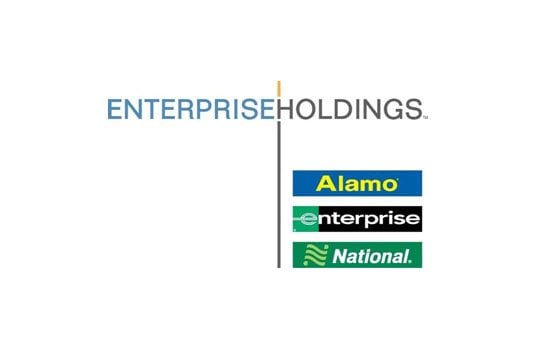Enterprise Holdings Inc., the largest car rental company in the world, delivered a strong argument for prioritizing consumer needs during a panel discussion at the 2017 Consumer Electronics Show (CES), an annual consumer electronics and consumer technology tradeshow that has provided a global platform for innovation and public policy debates since it was first held in 1967.
The January 4 panel discussion—”Navigating Risk throughout the Mobility Ecosystem”—addressed autonomy, cyber threats and other risks and liabilities that may impact emerging mobility opportunities. Panelists included Enterprise Holdings Assistant Vice President of Corporate Government & Public Affairs, Tomi Gerber; Consumer Advocate, Lawyer and Author of Unsafe at Any Speed, Ralph Nader; U.S. Department of Energy Vehicle Technologies Office Director, Michael Berube; and Partner and Co-Chair of the Automotive Practice Group at Warner Norcross & Judd LLP, Tom Manganello. Robert Biskup, Managing Director, Deloitte Advisory LLP, moderated.
“Consumers should dictate the winners as mobility business models and technology evolve,” said Gerber. “We must let innovation and responsiveness to consumer needs determine which businesses thrive in the market. And incentives should encourage the use of transportation that achieves public interest goals, versus subsidizing individual businesses.”
During the panel discussion, Gerber summarized several risks to tomorrow’s mobility ecosystem, as well as potential solutions for those risks:
- Risk: Making autonomous vehicle policy decisions, within the numerous regulatory disciplines, independently. Affected disciplines include consumer safety regulations, liability laws, data security, the insurance market, data ownership standards, fair trade practices and even legal standards for ownership. Without a comprehensive understanding of the diverse transportation marketplace, decision-makers may inadvertently limit consumers’ mobility options in the future. Solution: Coordinate new regulations across disciplines to ensure consumer choice is not artificially constrained or unnecessarily limited.
- Risk: Regulating services based on how they are delivered instead of based on what consumers receive. This approach may jeopardize public safety, consumer interests and fair competition. For example, car rental and car sharing (hourly car rental) are sometimes regulated differently, even though they provide the same service to customers. Solution: Evaluate the need for regulation based upon the service being provided and ensure that any necessary regulations apply equally across all delivery systems—digital, technology-enabled or traditional.
- Risk: Subsidizing unsustainable business models. Government has an obvious interest in steering the public toward technology-enabled mobility to reduce congestion, increase access and improve safety. However, if subsidies for certain business models are used to drive consumer behavior, there is a danger that unsustainable businesses will crowd out other transportation options and reduce consumer choice. Solution: Instead of subsidizing businesses, provide incentives to the consumers who choose transportation options that reduce congestion, increase access and improve safety. This option would inevitably support business models that achieve these goals while providing the best consumer value and experience.
Care, Custody and Economics
On the same day that Gerber participated as a CES panelist, The Information news site published an interview with Enterprise Holdings Executive Vice President and Chief Strategy Officer Greg Stubblefield, focusing on some of the same transportation public policy issues, including the importance of establishing a consistent and fair set of rules from a regulatory perspective. “The ride-hailing business has been around for a long time,” he said in the January 4 article. “At some point in time, the playing field needs to be leveled between ride-hailing and taxis and livery in terms of care, custody and economics. Today, it’s an unlevel playing field.”
Last spring, Stubblefield participated in an Urban Land Institute of St. Louis panel discussion, “The Future of Land Use in a Region of Driverless Cars,” which addressed both the benefits and concerns associated with automated vehicle technologies.
“The U.S. car rental industry may very well be one of the early adopters of autonomous vehicles,” said Stubblefield. “Consider that we average almost a million car rentals per week in the U.S. We know many drivers first experience new automotive technologies in rental vehicles, and there’s no reason to think it will be any different with autonomous technology. So, while potential liability issues obviously still need to be evaluated, our industry can quickly and efficiently introduce new autonomous vehicles to millions of consumers in cities and towns of all sizes.”
As the owner of 1.9 million vehicles, Enterprise Holdings is an integral part of the nation’s transportation value chain with its customers logging more than 25 billion miles every year. In fact, Enterprise has been delivering transportation alternatives right where people live and work since 1957. Forty years later, Enterprise trademarked the term Virtual Car®, after recognizing the strength and energy of local service, whether it is for an hour, a day, a week or longer.








